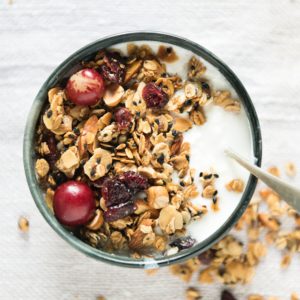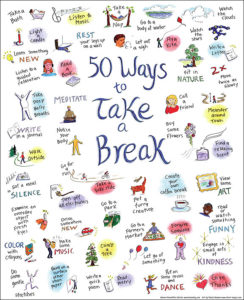Blog
The Stress of Final Exams
- May 8, 2019
- Posted by: Rachel Quattrin
- Category: Teen Tween Young Adult

Spring break has come and gone, and summer is right around the corner. What stands between you and the glory of sunny summer days is the hurdle of exam season. Finals, AP exams, papers, presentations, and more. While your responsibilities as a student grows to overwhelming proportions, you may also be faced with financial responsibilities – blocking hours out of your day for work, responsibilities at home with completing your chores in a timely manner, or social responsibilities with spending time with friends. Suddenly you find yourself juggling more than you can handle and the stress of it all seems to bury you alive!
What is stress and how do we manage it?
Believe it or not, the feeling and response of stress are programmed into our bodies and everyone experiences it. It’s the very thing that fuels our motivation to study or to wake up in the morning. Stress is a response to events that occur in our lives that places strain on our physical, mental and emotional wellbeing. When events of our day change randomly or move out of our control, our bodies internalize this, resulting in a stressful situation. It is also important to mention that stress can come in positive forms (aka eustress) to help motivate us and improve our performance, such as competing in athletics, planning a trip, or studying! However, exposure to long term stress may lead to serious health conditions including anxiety, depression, weight gain, and high blood pressure.
There are many different ways to manage stress. Remember that stress management is a personal endeavor, and some methods work better for some than others. The best way to approach managing your stress is to find what works best for you. Lucky for our generation, the answer is just a Google search away. Here are just a few tips to help manage your stress:
Take a walk outside. This will give you a chance to recharge, move your legs after sitting for a long period of time, and breathe in some fresh air.
Talk to someone. You may find that giving your parents a call or talking to a close friend may help to take your mind off studying. If you are feeling stress or pressure from studying, this would be the perfect opportunity to verbalize and vent those feelings.
Enjoy a healthy study snack. Healthy snacks include yogurt and granola, apples and peanut butter, baby carrots, chips and hummus, your favorite fruit, and many other light and refreshing snacks! Avoid eating heavy meals or junk food during your break, as they will make you feel sluggish and may be difficult to sustain you for the rest of your study time.
Relax and meditate. Life seems to move the fastest when we are stressed out. We are constantly being fed with information to process and not enough time to relax and unwind. Even as little as 5-10 minutes of meditation and relaxation will help to reduce our daily life stressors. Here are a few tips on how to begin:
task!
Schedule HEALTHY study breaks (and make them effective too). Taking breaks in our study routine can greatly reduce levels of stress and will allow our minds to feel refreshed and recharged. This will make the time you are studying more effective as you limit distractions and allow your mind to briefly escape from exam materials. It is recommended that these breaks last no longer than 10-15 minutes, with your dedicated study time of intervals between 45-90 minutes. Keep in mind that everyone’s study habits are different, and some break activities are more effective for others. Avoid activities that will stray you away from attentiveness and concentration.
AVOID UNHEALTHY OR DISTRACTING BREAKS! This would include watching TV, indulging in junk food, playing video games, engaging in social media, or other use of your phone. These activities will actually make us feel more tired or lethargic and will make the transition back into studying harder than before.
Avoid procrastination. Although what seems like “a rite of passage” for students, pulling all-nighters is no more than an unhealthy and ineffective advance to prepare for exams. Avoid the stress by planning your study time in advanced.
Stay active! The world of academics is often a very dormant and sedentary type of endeavor. It has been proven that regular exercise and physical activity boost productivity, morale, and confidence. Staying active is the best preventative medicine to reduce our levels of stress. Bonus points for engaging in activities that you enjoy! This could be running, swimming, lifting, dancing, or yoga. If you are a university student, your campus offers fitness centers that are included in your tuition! Visit the links below for more information.
UNLV: https://www.unlv.edu/campusrec
UNR: https://www.unr.edu/fitness
It is incredibly easy to fall into unhealthy habits to cope with stress such as smoking, drinking, or other risky behaviors. These habits will later lead to the serious health problems in life. Practicing healthy stress management is the key to our longevity. It is important to remember that all this will soon pass over. The stress from exams is temporary, and you will soon be on the other side, basking under the warm summer sun!
This post was written for Healthy Young NV by Rodney, a Youth Advisory Council Member.
Resources:
http://healthyyoungnv.org/young-adult-category/stress/
https://www.unr.edu/counseling/self-help-center/stress-and-anxiety-management-skills
https://www.cmhc.utexas.edu/stress.html https://www.healthyway.com/content/everyday-stress-management-techniques-that-emphasize-self-care-mental-health-and-physical-well-being/
https://www.hopkinsmedicine.org/health/awareness/stress.html


